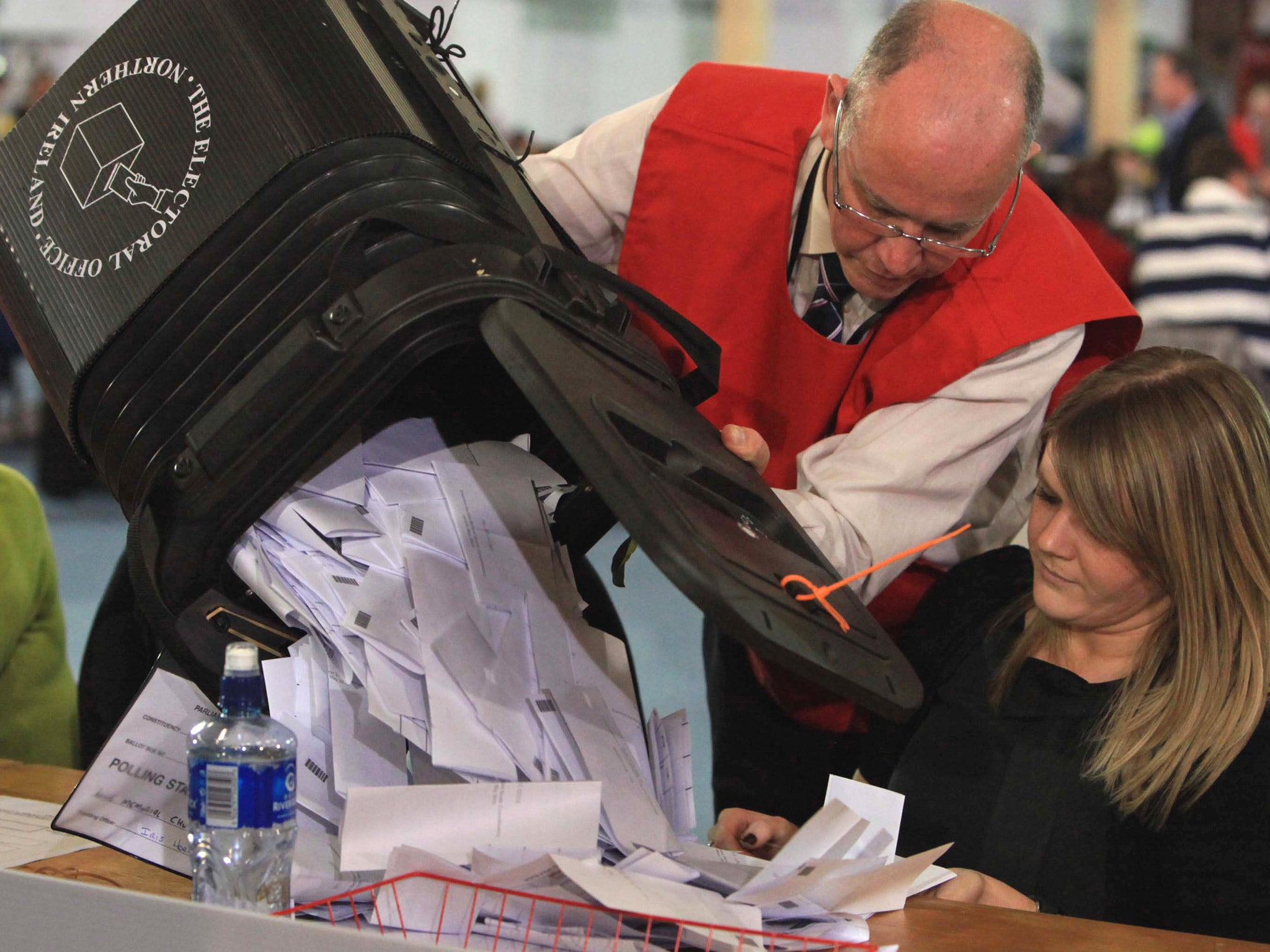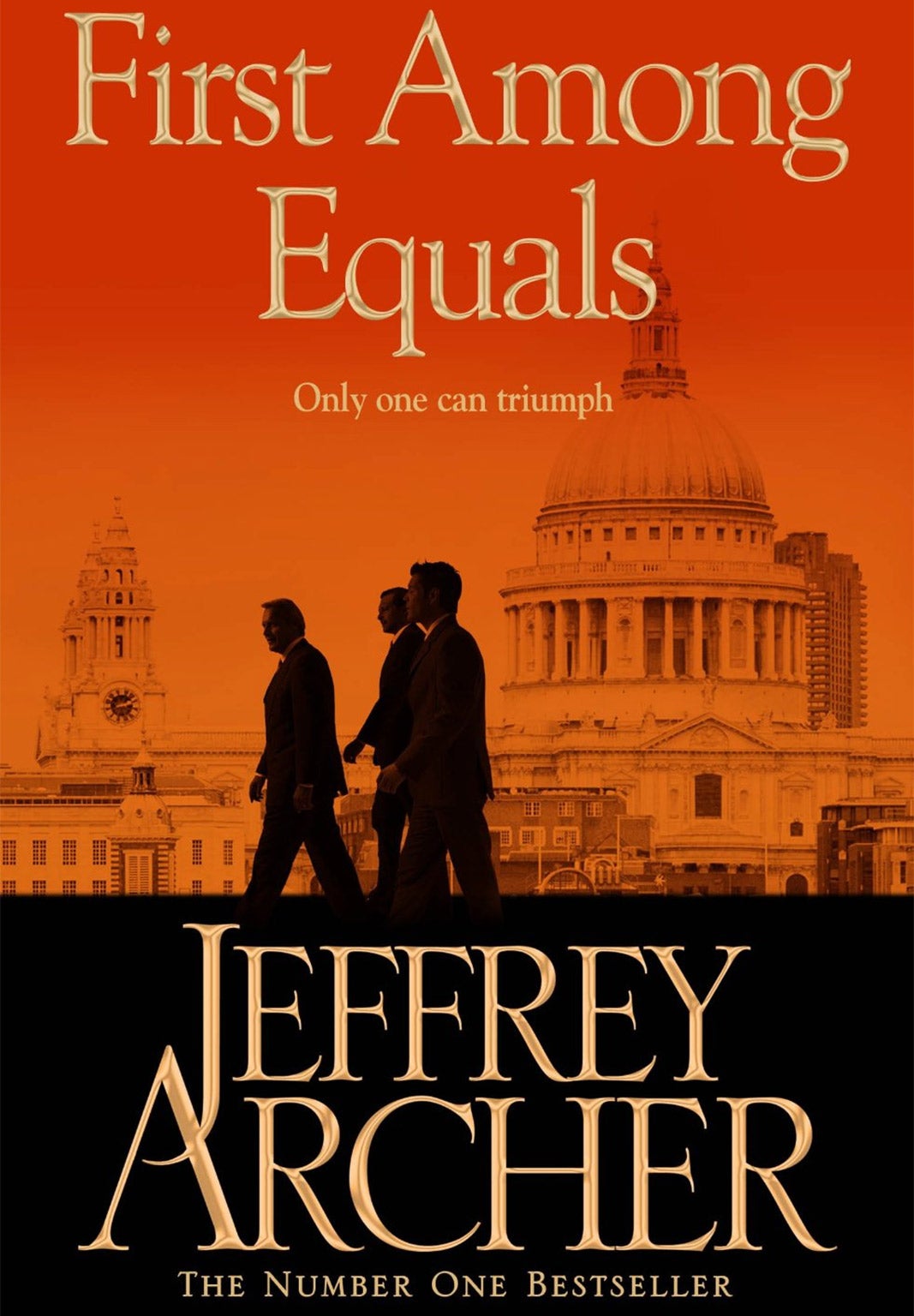General Election 2015 explained: Dead heats, unelected MPs and recounts
Continuing our daily miscellany celebrating the facts, figures and folklore of British general elections

No. 4 Disputes
Recounts
If the result in a constituency is particularly close, any of the candidates involved can demand a recount – and, if necessary, further recounts after that. It is up to the (Acting) Returning Officer to decide whether or not such demands are reasonable.
Record number of recounts: Seven
This happened in Brighton, Kemptown, in 1964, when D.H. Hobden (Labour) won by seven votes; and in Peterborough in 1966, when Sir Harmer Nicholls won by three votes.
Recounts in the 2010 General Election included Oxford West and Abingdon, where Nicola Blackwood (Conservative) beat Evan Harris (Liberal Democrat) on a recount by 176 votes; and Solihull, where Lorely Burt (Liberal Democrat) beat John Taylor (Conservative) by 175 votes after two recounts.
In the same election, former minister Phil Woolas (Labour) held Oldham East and Saddleworth by 103 votes after three recounts. That was not, however, the end of the story…
Challenges and petitions
Voters – and candidates – who doubt the legitimacy of a parliamentary election result have the right to submit an election petition at the Election Petitions Office. A minimum of four voters must sign the petition.
Petitions must be delivered to the Election Petitions Office at the Royal Courts of Justice (or, in Scotland, the Court of Session) at any time up to midnight on the 21st day following the return by the (Acting) Returning Officer of the writ confirming the result of the election (usually the day after the election). If no one is in at the Royal Courts of Justice, you can put it through the letter box of Room E08.
The fee payable on issue of an election petition is £400. In addition, petitioners may be required to provide security of up to £5,000 against costs of the hearing. You must serve a notice of presentation of the petition (together with relevant paperwork) on the Director of Public Prosecutions.

After the 2010 general election, Phil Woolas (see “Recounts”) found himself on the receiving end of an election petition under Section 106 of the Representation of the People Act 1983. Woolas was accused of making false statements about a rival candidate. A specially convened election court found against Woolas. A subsequent judicial review reversed the ruling on one of the three counts. Woolas resigned his seat and was disqualified from holding elected office. A by-election in January 2011 saw a fresh candidate, Debbie Abrahams, retain the seat for Labour.
Rodney Connor (Unionist “Unity” candidate), also faced a petition – relating to errors in the issuing, counting and rejection of ballot papers - in Fermanagh and South Tyrone. It did not succeed. Before the Woolas case, the last successful challenge to a general election result had been in 1997, when a Conservative challenge overturned Mark Oaten’s two-vote Lib Dem victory in Winchester. Oaten won the subsequent by-election with a majority of 21,556.
General Election 2015 explained: Broadcasting
General Election 2015 explained: Who registers the parties?
General Election 2015 explained: The candidates
Dead heats
In the 1886 general election, there was a tie in Ashton-under-Lyne, with the Liberal and Conservative candidates each receiving 3,049 votes. The (Acting) Returning Officer gave his casting vote to the Conservative, John Addison.

The modern convention is that, if votes remain level after recounts, the (Acting) Returning Officer will decide the winner by a random method such as tossing a coin, drawing straws or putting candidates’ names in a container and pulling one out. This happens in Jeffrey Archer’s novel First Among Equals – but has yet to occur in a real-life general election under universal suffrage.
It has, however, happened in local elections. In 2000, in the Worksop North East seat of Bassetlaw District Council, three re-counts failed to separate the Labour and Conservative candidates, but Labour won on the toss of a coin. And control of Stirling District Council has twice been decided by cutting a pack of cards, in 1988 and 1992 election courts If a petition questioning the legitimacy of an election result is filed with the Election Petitions Office, the case may be heard in a special election court, under two judges with the same powers, jurisdiction and authority as a judge of the High Court.
Unelected MPs
It is possible for an MP to be returned to Parliament without having won the election in his or her constituency. This would happen if the person who actually won the seat was disqualified, and the seat was then awarded to the runner-up instead.
At least two MPs have won seats in this way in the past 70 years. Malcolm St Clair (Conservative, Bristol South- East) won his seat in this way in a 1961 by-election, after Tony Benn, who won 70 per cent of the votes, was disqualified for being a peer. Charles Beattie (Ulster Unionist, Mid-Ulster) was awarded his seat in 1955 after Sinn Féin’s Tom Mitchell was disqualified for being in prison for treason felony. Beattie was then disqualified himself, for holding “offices of profit under the Crown”, less than two months after taking his seat.
Tomorrow: The electorate
The Independent has got together with May2015.com to produce a poll of polls that produces the most up-to-date data in as close to real time as is possible.
Click the buttons below to explore how the main parties' fortunes have changed:
All data, polls and graphics are courtesy of May2015.com. Click through for daily analysis, in-depth features and all the data you need. (All historical data used is provided by UK Polling Report)
Join our commenting forum
Join thought-provoking conversations, follow other Independent readers and see their replies
Comments
Bookmark popover
Removed from bookmarks